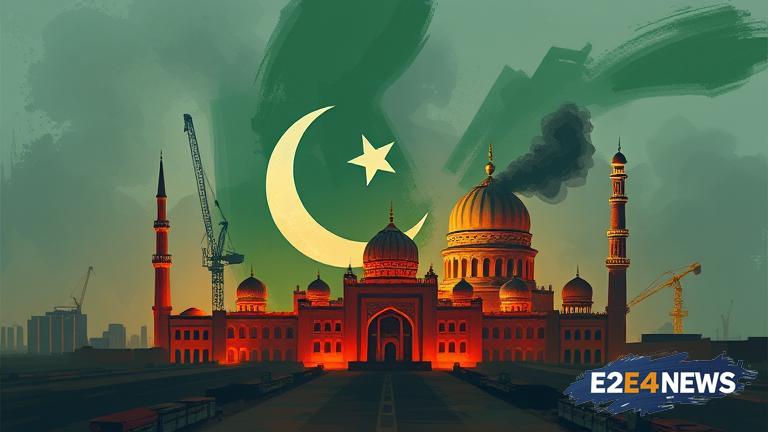Pakistan’s economic situation has been a subject of concern for quite some time now. The country’s foreign exchange reserves have dwindled significantly, leaving it with barely enough to cover two months of imports. This has resulted in a severe shortage of essential goods, including food and medicine. The trade deficit has also widened, with imports exceeding exports by a substantial margin. The government’s efforts to boost exports have been unsuccessful, and the country is struggling to pay its debts. The public debt has increased substantially, with the government borrowing heavily from local and international markets. The interest payments on these loans are a significant burden on the economy. The country’s tax revenue has also been declining, making it difficult for the government to meet its expenses. The economic crisis has had a severe impact on the common man, with inflation rising to unprecedented levels. The prices of essential goods have increased significantly, making it difficult for people to afford them. The unemployment rate has also increased, with many people losing their jobs due to the economic downturn. The government has been trying to implement austerity measures to reduce its expenses, but these measures have had a limited impact. The opposition parties have been criticizing the government for its handling of the economy, and there have been widespread protests against the rising prices and unemployment. The international community has also expressed concern over Pakistan’s economic situation, with the International Monetary Fund (IMF) warning that the country’s economic stability is at risk. The government has been in talks with the IMF to secure a bailout package, but the negotiations have been slow. The country’s economic crisis has also had a significant impact on its relations with other countries, with many countries expressing concern over Pakistan’s ability to repay its debts. The economic crisis has also had a significant impact on the country’s security situation, with many experts warning that the economic instability could lead to social unrest and instability. The government has been trying to address the economic crisis, but its efforts have been hindered by the lack of a clear economic policy. The country needs a comprehensive economic plan to address its economic woes, but the government has been unable to come up with one. The economic crisis has also had a significant impact on the country’s infrastructure, with many development projects being delayed or cancelled due to the lack of funds. The country’s energy sector has also been affected, with many power plants being shut down due to the lack of fuel. The economic crisis has also had a significant impact on the country’s agriculture sector, with many farmers struggling to get loans and other essential services. The government has been trying to provide support to the farmers, but its efforts have been limited. The economic crisis has also had a significant impact on the country’s education sector, with many schools and universities being affected by the lack of funds. The government has been trying to provide support to the education sector, but its efforts have been limited. The economic crisis has also had a significant impact on the country’s healthcare sector, with many hospitals and clinics being affected by the lack of funds. The government has been trying to provide support to the healthcare sector, but its efforts have been limited.
